interview by Michael McCarthy
photos by Joe Gorelick
Red Dragon Cartel videos directed by Joe Gorelick
If you were into heavy metal in the early ’90s, then chances are you were a fan of Lynch Mob, guitarist George Lynch’s post-Dokken band. Their debut album, Wicked Sensation, performed as well as a Dokken album and made bassist Anthony Esposito and vocalist Oni Logan household names; drummer Mick Brown was also in Dokken and already a big name. Esposito also played on Lynch Mob’s excellent self-titled, sophomore album, which also did very well, then he parted ways with the band. In 2003, he rejoined the band (sort of; see below), which put out the album REvolution, which wasn’t as well received because many Lynch Mob and Dokken fans didn’t appreciate the tuned-down, grittier versions of the songs that were re-created on the record. Aside from two live albums, those were the only Lynch Mob albums Esposito performed on Ace Frehley’s Anomaly album then… he seemed to vanish. At least from this writer’s radar. That is, until he turned up on the second album by guitarist extraordinaire Jake E. Lee’s band Red Dragon Cartel, Patina, which was released earlier this year. (Lee is famous for his work with Ozzy Osbourne and Badlands.) If you like hard rock and/or heavy metal, it’s one of 2018’s absolute, must-have albums of the year. In some ways, it calls to mind REvolution with its gritty guitars and semi-dirty sound. One of the best things about the record is that it sounds like a true band album, whereas the band’s debut, which Esposito didn’t play on, sounded a bit more like a guitar god album. Technically, the band’s full name is still Jake E. Lee’s Red Dragon Cartel, but in some ways, it’s as much Esposito’s album as it is Lee’s because Esposito co-produced and co-wrote the album with Lee in addition to performing bass on it. And so I jumped at the opportunity to speak with him about the Cartel, Lynch Mob, Frehley and much more.
MM: First of all, at what point did you join the Cartel?
AE: I was asked to join the band in 2015 in March. As far as the bass playing goes, they had the original guy that Jake couldn’t stand working with anymore, so he fired him and then he picked up Greg Chaisson from Badlands, a great bass player, and then he kind of got ill and couldn’t proceed. So, Jake asked me and I said, of course, yeah.
MM: So, you knew Jake before?
AE: Oh, yeah, when I was in Lynch Mob, we met ages ago in the early ’90s.
MM: Were you on the first Red Dragon Cartel album?
AE: No, I definitely wasn’t.
MM: I understand the new album was recorded at your Obscenic Arts studio in Dillsburg, Pennsylvania. Was the entire album recorded there or was anything recorded elsewhere before setting up at your shop?
AE: The entire album was recorded here and written here as well. And we shot all the videos in my barn. I own a horse ranch. It’s really cool. Bands come and they stay here and record and I produce them and Jake liked to get away. Be on the ranch and be mellow with all the focus on the music and so I co-produced it with Jake, co-engineered it with my son Tyler, and co-wrote it with Jake. Jake and I are the writers.
MM: How did the writing process work? Did he come up with guitar riffs first?
AE: It all starts with Jake, you know? It all starts with the lick. Jake’s famous licks. It just stems from there. We originally started writing at the end of 2015 when we got back from Japan then he wanted to get the business side in order with the old management company and the old business partner and the record label. So, basically, the lion’s share of 2016 we were on a hiatus and the band’s lawyer was just negotiating with the label for a year and all of that, just to shut all those doors down. And the end of 2016, beginning of 2017, we started writing again with Jonas, who was the drummer. And then we made a drum change. Phil [Varone] came in. We rehearsed for about two weeks with Phil and then we started recording.
MM: How did Phil come to be in the band? I really liked him in Saigon Kick and Skid Row.
AE: Yeah, I mean, that’s another thing. I knew Phil way back. When he was in Saigon Kick, I was in Lynch Mob and Jake was in Badlands and we would always talk. And then he got a hold of me – I think it was on Facebook or something – and I was like, actually, yeah, we’re auditioning drummers now, and he had this incredible, gung-ho attitude. He totally wanted to do it. He told me, “Send me songs so I can learn them and I’ll come out. I’ll pay for my own flight. I just want a shot.” And Jake has always been a fan of Bill Ward’s playing, which is very tom oriented, which Phil has. In Saigon Kick, he used a lot of toms. So, that kind of lent itself to the style that Jake was hearing already. What he wanted on the album in the first place. So, it was a good fit.
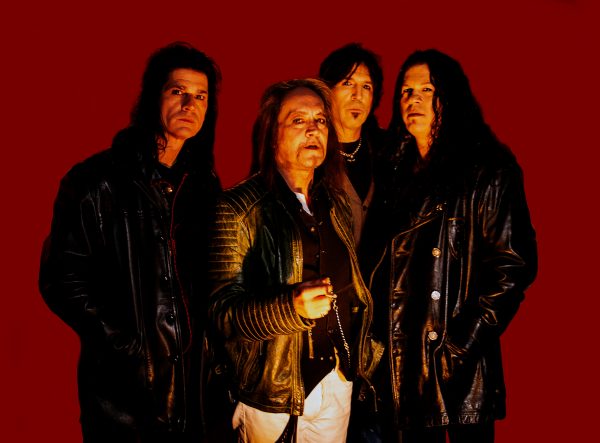
MM: How did you learn to produce? Was it just from being in the studio so many times over the years or did you have a mentor or anything?
AE: Well, I kind of started when I was in a band in the early ’80s, mid-’80s and it was managed by Tony Bongiovi, who owned Power Station, so we were basically like Tony’s slaves. Matt Wells, who’s now an incredible guitar amp builder, was our guitar player. He would check a lot of the stuff in Power Station. And we would do everything from solder cables to get coffee and assist on sessions, just to be around it, you know? And then when I got off tour with Lynch Mob I needed a place to store my stuff. All my flight gear, flight cases and all that stuff. That started out as a rehearsal room and then everybody would rehearse there and it was just the next logical step to turn it into a recording studio and then it kept growing and growing and I bought an amazing console and then before I knew it I blinked an eye and Green Day’s in, The Ramones are in, The New York Dolls are in. The Misfits. The last record I tracked in the studio in Manhattan was Ace Frehley’s Anomaly record and then my landlord wanted to triple my rent on the space. My lease was up. I had a 15-year lease. So, I was like screw that, so I ended up moving to Pennsylvania and re-opening the studio, which is way nicer than the one in New York was. The drum room I have now is an old, three car garage size carriage house – pre-Civil War – and it’s really cool. It’s special. You look out the window and there are creeks and rolling hills. It’s really nice and it’s a good getaway. The bands like it. They get to focus. It pretty much found me. I never really want to [produce]. I was always the bass player in bands and writing songs and the engineering, and the studio, and all of that just sort of found me. And I love it. I’ll work with any band. I’ve worked with high school bands all the way up to Red Dragon Cartel in one year. I like to be around it. Any day in the studio is a good day for me.
MM: Do you produce rock music exclusively?
AE: No, I’ve done rap. I did a record with this guy Too Short, who’s kind of famous. I’ve done jazz records. I’ve done blues. Right now I was mixing a great three piece. They’re kind of in the vein of ZZ Top and Stevie Ray Vaughn, [called] Machine Gun Preachers out of Indianapolis. I did four songs with them and I’m mixing them now. Everything from classic rock to new rock. I kind of have a sound that sorts of leaks into everything I do. I like real, live drums. Real band performance orientated stuff is what I prefer to do. The old school rock records were made that way.
MM: Who are some of your all-time favorite producers?
AE: I love Chris Thomas. Chris Thomas would probably be my favorite, just for the diversity. [He did] the early Pretenders records and then he did INXS and he did Never Mind the Bollocks for the Sex Pistols. It just seems like every genre he did, he made it incredible. He was really talented. I got to work with Max Norman and Neil Kernon on the Wicked Sensation record and those two guys are about as good as it gets when it comes to that rock. And on the second album with Lynch Mob, we worked with Keith Olsen, who’s another brilliant genius. He put together the whole sound scene in the studio. Everyone from Fleetwood Mac to Ozzy to Whitesnake. He’s done everyone. And he did our second Lynch Mob record.
MM: What program or programs do you use to track when you’re recording?
AE: Pro Tools. But the whole thing is, I was raised on tape. So, I think of everything analog. I basically use Pro Tools as a tape machine. I very rarely use plugins. I have tons of old, vintage outboard gear and mic pre-s and compressors and old reverb units and stuff like that so I’m not really one of those new school Pro Tools guys. I use it as a format to catch the sound. Everything before the sound is all vintage mics and vintage mic pre-s to warm it up and then when I mix I don’t mix in the box either. I come back to a console and use all my outboard gear and everything and go with that. I’m not really a big Pro Tools guy. I prefer to use tape. I know how to cut tape. I know how to bias a tape machine. But the cost of tape is not always in the budget, you know?

MM: How did Max Norman come to mix the new Red Dragon Cartel album?
AE: He did Jake’s biggest album, which was Bark At The Moon, and he also did my biggest album, which was Wicked Sensation with Lynch Mob. So, I was like, Jake, you know what, he’s kind of like the common denominator between us. Wouldn’t it be great if we got him involved in some way? And we were already into the writing and into the tracking when it came up. Jake and I we were producing, and we were very happy with how it was shaping up, so I contacted Max and I said, “Hey, Max, do you maybe want to be involved in this? Maybe mix it or something?” He was like, “Yes! I totally want to do it! Whatever, I don’t care, we’re not talking money, we’re not talking anything, I want to do it! I love both you guys; I want to do it again. I want to work with you guys again.” So, he came out to the ranch and we hung out, and we played the tracks and where they were at that time, and he really liked the direction of the stuff. He threw out ideas here and there on some of the songs and bounced them off Jake and I.
MM: Nice. Very cool.
AE: And then every time I would pick Jake up at the airport we would drive past this barbecue smokehouse tavern-style joint in the middle of the woods. Jake was like, “Oh my God, let’s go to that bar barbecue joint and see if it’s really good.” Because every time we drove by it smelled really good. It was this old school, biker bar, barbecue joint and there were probably like 15 people in there. Bikers and chubby women with four teeth. Jake went out to get a phone call to talk on the phone in the parking lot and Max had went into the bathroom. So, I got up and I ran over to the jukebox and I put “Bark At The Moon” on. And I’m sitting there and [people are] talking about it and critiquing the mix and all this stuff and Max did mix it. And they were critiquing it and how they tracked it. And I got my fly on the wall questions in while we were sitting at the bar. I was like, little do these people know – the guys shooting pool and sitting at the bar – that they’re sitting five feet away from the guitar player who wrote the album. It was one of those funny happenings.
MM: What does the title of the new Red Dragon Cartel album, Patina, mean? I looked it up and it said it was, “a green or brown film on the surface of bronze or similar metals, produced by oxidation over a long period.” But I’m assuming it must be meant as something different as the title of the album?
AE: There are a couple reasons why. And it was Jake’s idea. Completely Jake’s idea. Patina can form on anything. It can be on wood or metal. It’s basically the oxidation process, or aging process, of a material and how it gets aged naturally. And we’re not young kids. We’ve been making records and doing this for a while, and we kind of obtained this patina on our music, and on our approach to music, and how we approach the instruments and everything. So, it was kind of like saying that we’re aged like a wine. Patina’s the same thing on a thing. And while we were writing Phil had come out to do those two weeks where we were wrapping up the writing portion. We always watched the DIY Network or Home and Garden Network, and they always do these critiques, and every five minutes they’d say the word patina. Oh, look at the patina on this. I walked through the living room where they had the TV on and I was like, “All right, enough with this word already! I hate this word patina! It’s driving me crazy.” And then we went out that night to a bar and we had a few cocktails and had fun. Everybody in the whole band was there and Jake comes up to me at the bar and he puts his hand on my shoulder and he goes “I think I’ve got a great title for the CD.” He’s like, “You’re not gonna like it.” Because he had heard me ranting about how much I hated that word. I’m like, “Really? Just tell me and let’s see how I react to it.” “Patina!” I’m like, “Noooo, not that word again! Now I’m gonna have to hear that word for the rest of my life in association with this record.” He goes, “Just take a minute. Don’t rush to react. Think about it. Think about what the word means, and think about the band, and think about us as musicians, and the whole thing. And then two or three drinks later I was like, “You know what, that is a great name for it. And it totally fits the band and the sound and the approach and our credo and our beliefs as musicians. We’re musicians. We don’t run after trends. We just get aged with time.”
MM: That makes sense then. Now, the album has a lot of intricate parts that remind me of prog a bit. “Speedbag,” for example, could almost be a Rush song. Do you guys consider the band to be prog at all?
AE: You know what it is? I think our music – when you first listen to it – just get hit with it. You get struck by it. You’re not really listening that deeply to it. But then when you try to figure it out to play it, you’re like, holy shit, he’s doing that. Then you kind of discover the nuances of it. And, actually, “Speedbag,” Jake had come up with that “do do do do do do do” that was like the core that we built the song off, that part with the D3, right? So, he told me a story. He said, “You know, when I learned to do my right-hand picking stuff, I listened to a lot of Indian music because it’s broken up into different time signatures. And [the way] they pick, alternate picking, is different. As is in a triplet, there’s the obvious way, down up down, how you would pick a triplet. You go up, down, up, down. He was like we can introduce some of the Indian style picking where we accent different notes in the third that make that. So, that’s why he’s actually playing the triplet three different ways in the chorus. The main one, then there’s the turnaround cap, which is the accent on the third hit, and then the last one is accented on the first hit. That was one instance where it was consciously introduced, the picking thing. It drove me crazy. Jake’s such a musician – not just a guitar player, a musician – and he thinks of music as a block of work with drums all the way up to cymbals, the vocals. He doesn’t just think of the guitar part. And it was his approach to that that made that section interesting. A lot of the other stuff was just because we didn’t want to be a boring, one-sounding record. Over the period of time with the consciousness of the musician, you’re exposed to all different types of music and they subconsciously link in and leak in. Jake, as far as his guitar playing goes, is not a one trick pony. He does so many things well. So, we wanted to introduce those flavors but not really derive from the overall picture of the album.
MM: What are the plans to tour behind the new album?
AE: We’re going out in February starting in the South West and ending up in the North East, kind of like a big diagonal through the country and then we’re supposed to hit Japan, and then after Japan it’s question marks where maybe we go to Australia or whether we come back and do the States again, or whether we go to Europe. We’re kind of planning it out right now. But as far as it goes right now, up to three-quarters of the way through April we end in Japan.
MM: When I was looking at some of the tour dates I saw you were playing Pittsburgh on March 18th and then it looked like it’s almost a week until the next show. I don’t know if you’re aware of it but there’s a casino in Connecticut called Mohegan Sun –
AE: – Yeah, I played it with Ace. You need to look at the new, updated one. We don’t have any days off. And the only days off that we have are like 800-mile drives on the bus. Our days off are like sitting in the bus. They booked this tour really tight and it’s like the day off between Colorado and San Antonio is a drive day to get there. And the first album and tour cycle were mishandled by management and Jake’s business partner. We’re hoping that the excitement and the great response we’re getting on the CD rolls over into this tour run that we’re doing at the end of February, and it will help us be able to keep touring and afford to be able to tour. Because nowadays it’s very difficult to tour. And with Jake’s health with his back and his wrist, he really needs a bus so he can sleep and recover. The van thing doesn’t really work to recover.
MM: What’s the set list like? Are you doing Red Dragon Cartel songs exclusively or do you whip out songs from your previous bands?
AE: Well, Jake’s the boss. So, he makes the set list. I think the lion’s share of the set will be the new record. Just because it was written with a band foundation. It was written live in a room. The songs will really benefit from being played live. The first record, there will probably be two or three that will definitely be in the set. I would think “Feeder” would definitely be one or “Wasted” or “Shout it Out.” It’s all up to Jake. And then he doesn’t want to do any more Ozzy songs live. We did them on the last run and he felt weird on stage playing them. Even though he wrote them and played on them, he still feels like they’re Ozzy’s songs. He wants to learn four or five Badlands songs and probably do one or two maybe but do one a night and change them up.
https://youtu.be/Iuzw9erGJfQ
MM: So, no Lynch Mob songs then?
AE: Nah, no. I’m an employee bass player on this. It’s not my band. It’s Jake’s band. I just try to help him get stuff done the way he wants it, you know?
MM: I know there are a lot of guys who are in multiple bands on the Frontiers label. Are you doing anything else with them?
AE: Nope. I’m not a mercenary. A whore. I pretty much like to concentrate on one thing and focus on it and try to help make it the best it can be, and I think we accomplished that with Patina. I think we made a really great record. It took a lot of time to do in today’s standards. It was about a year, a year and a half to make. And most bands nowadays do a record in two weekends and throw it out and tour on it. I love playing with Jake so much, and he lets me do whatever I want to do musically in the context of the band, so I don’t really need any other avenue to go out and explore anything else. I’m proud to be in this band. We made a special album. And it’s a special band. And I think if I did anything else it would just detract from my input or work ethic. It would be diminished toward throwing it into this band.
MM: Are you producing any other bands right now? I mean, not for Frontiers.
AE: I love producing. Like I said, anywhere from a high school band all the way up to national acts. I would love to produce bands in my time away from RDC when we’re not touring. But I wouldn’t play with anyone. Oni called me up – we’ve become very close – and we talk and he kind of had a bitter taste with the last thing with Lynch Mob and his last departure. And he’s like “Ant, would you go back if I told George original line-up touring with George and Oni and myself, would you be interested in doing it?” I’m like, “No, I’m not interested in doing it at all. That ship has sailed. What’s the point?” I don’t really do things for cash grabs. There’s a lot of that going on and that’s a lot of the motivation for the mercenary-isms, and the jumping, and oh let’s get together a weekend with these four guys and see what we get. It’s mostly a cash grab. I’m not really interested in doing that kind of stuff, you know?
MM: I saw on the Lynch Mob page on Wikipedia that you’ve reunited with the band a couple of times –
AE: – Nope, I haven’t been in the band since like 2001. We did that ridiculous record called Re-Evolution, Revolution, where we took old Lynch Mob songs and Dokken songs and George had a new guitar. A seven string guitar. And wanted to re-do them all, more modern sounding to highlight this new guitar he had for ESP. I was actually visiting a good friend of mine, Joe Barresi, who’s a phenomenal producer and I was visiting him. He was in studio A and then George was working on that CD in studio C. And I was in L.A. for like a week or so. George was like, “Do you want to play bass on this?” And I was like, “Sure.” It was a George Lynch solo album. It wasn’t a Lynch Mob album to begin with and I was like, “OK, yeah, I’ll play it. Why not? I’m here anyway and I’m not doing anything else. It would be fun to work with the old stuff and do new twists on it.” So, I played on it and all of a sudden it’s called Lynch Mob. And at that time I owned a third of the Lynch Mob name. I was like, “You can’t just do that. If you’re gonna call it Lynch Mob then you have to cut everybody that owns portions of it into it and it has to be approached like a Lynch Mob album.” I thought this was like a George Lynch guitar solo thing. “Sure, I’ll play on it.” But that’s the way it is when you play with Lynch. All these mystery things pop up later and you’re like, fuck, you know? That was the last time I was in. I went back in like ’98. I quit the band in ’93 or ’94 after the second album and then we had the original line up together again and we did this EP called Synergy that I produced and it was basically like three or four songs with the original line up. And we were gonna try to get it going again then Oni bailed and Mick bailed, and George had these tour dates. So, I felt bad and we went and found a drummer and a singer and we went and did the dates then we broke up again after that.
MM: I have to admit, I do love that album RE-volution.
AE: It was fun doing it. It was like, how can we mangle our old stuff and make it sound dirty and gnarly. And then the live thing worked well. It made the singing a lot easier with being down, but, yeah, that was fun. It’s really hard though to play like old “Tooth And Nail” and “Street Fighting Man” when you’re tuned down that much. You’re flopping around. It’s really hard to play percussive and tight. I thought we did a good job.
MM: You did the Ace Frehley Anomaly album. How involved were you in that? Did you write with him?
AE: Well, when I first met him I went up to his house and we jammed. And he hadn’t done anything since the Kiss Farewell Tour. He had laid low for like two years and he got the bug. He wanted to do something again. And I went up. We had a mutual friend and he introduced me to Ace and I went up there and jammed with him and we hit it off immediately and became really good friends. And he had all of these hand-held digital, Dictaphone-style recorders from the Farewell Tour. He had all of these licks from hotel rooms and he wanted me to co-write them. And I was like, “Listen, I’m very flattered that you asked me to co-write with you and I’m honored and thank you so much. But you haven’t done a solo album in twenty years and if I input my input on it, the more my input is on it, the less you it’s gonna be. And your fans want to hear you right now. Where you’re at. What’s on your mind. What topics do you want to address?” And I was like, “I’ll be happy to be a brain and organize everything and listen to all these Dictaphone things and go, on Dictaphone 3 at three minutes this part would go really well with this other part on Dictaphone 1 at the five-minute mark. So, we kind of organized all of these ideas. And then we got Anton Fig in to play drums and the three of us just jammed the ideas out and then Ace would start writing lyrics and melodies and stuff. That’s how the whole record came together. And we recorded it. I didn’t want to engineer and play bass at the same time. And we were tracking all three at once, so we got Jay Messina who was Jack Douglas’ engineer and Jay had engineered the first five Aerosmith records and the first two Cheap Trick Records – the guy’s a phenomenal rock engineer. So, Jay Messina was at the board, so we tracked the whole album, or most of the album, in my studio and then my lease was up so I brought all my gear up to Ace’s studio in his house and we finished the record there.
AE CONT’D: But halfway through the album Ace hired this manager, who hijacked the record. I was like, Ace, you’re such a prolific writer and you have so many great ideas. Because, the first thing, he always does a cover song. “You don’t need to do a cover song. The fans don’t need to hear another cover song. Just do ten songs that you wrote from your heart that show where you’re at now. You’re getting sober and you’re ex-Kiss and readjusting to life – just write about that stuff.” So, anyway, the new manager took Ace out of New York. I had Thompson and Barbiero mixing the album. The guys who did Tesla and Guns ‘N’ Roses Appetite for Destruction. Those guys were mixing Anomaly and the manager ripped Ace out of New York, brought him to California and hooked up with this other producer guy.” And he covered that “Fox on the Run” song and then he ended up doing another song, “Outer Space,” that was written by the manager’s friend. And there’s a song on it called “Foxy and Free” that was called “Hard For Me.” They changed the lyrics. And there’s a really nasty instrumental song on it that we used to call “Skulls” and now it’s called “Space Man” and there’s “Foxy and Free.” Nobody says foxy anymore. He used foxy up. That was it. And I was like, “What the fuck is going on?” Everything changed. The guy who mixed it, mixed it slick and modern and we’d cut it old school analog. The second half of that album destroyed it and I was very disappointed with how it came out. Because I heard how amazing it was when we were getting the mixes back from Thompson and Barbiero. I was like, this fucking record rocks. The way I approached it was like, “Ace, you’re fucking Ace fucking Frehley. They want to hear the licks like ‘Parasite.’ They want to hear the nasty, balls in your face rock licks that made you Ace fucking Frehley.” And the record got hijacked and the manager put him with the wrong people. It’s whatever. It’s definitely the best one that he did. The two or three that he did after that I don’t really like too much. Space Invader and whatever the new one is. I think Ace can really do better than that. I miss working with him. I love the guy. We had a falling out. I got fired. It hurts me because I looked at where it was when we were doing it – the band and the look and the sound – and everything was pro. And I just look at it now and scratch my head.
RANDOM QUESTIONS:
MM: Name three artists that people would be surprised to learn that you like.
AE: My favorite band, growing up, that I saw all the time was The Police. I saw The Police seventeen times. I was majorly into them. I grew up a punk rocker. I grew up on The Police, The Buzzcocks, The Jam, The Sex Pistols, The Clash. That kind of stuff is what I was listening to. My first metal band I was ever in was Lynch Mob. Another that people would be surprised? I love Alicia Keys. Any CD that she does. In a day and age driven by divas like Beyonce, and all the way down to like Pink and the Miley Cyruses, Alicia Keys is a class act and amazing. My other job that I do besides music stuff is I’m a set designer and art director for MTV and TV commercials and stuff. I work for this guy Kevin Largent at Largent Studios in New York and he’s a phenomenal designer and we do all the Storytellers and the Unplugged for MTV and all that. We did one for Alicia Keys. I think it was Storytellers. And she blew me away. Just working with her on one day, how classy she is and down to earth. In a world cluttered with divas, she’s a talent who’s head and shoulders above the rest and a breath of fresh air as a human being.
MM: She seems very down to earth.
AE: And then the third one – popping into the top of my head right now – there could be others, but Muse. I love Muse. We were touring over in Australia with Ace and our tour manager was best friends with the tour manager who was doing Muse. They were doing this massive festival and we went after practice to watch them. We stood on the side of the stage while they were on stage in front of 85,000 people and they blew me away. Their craft, their songwriting, their approach to music, a lot of the stuff is a bit derivative of Queen and Radiohead, kind of a blend between them, but I like that they take risks. They all don’t sound the same. Like their earlier stuff is almost gothic, like a baroque approach, as opposed to the new stuff, [which] is a bit more poppier, synth-oriented with programming. But I like that band. I like the talent level in the band, their approach to music, and not being pigeonholeded to one sound.
MM: I really like them, too. So, are you currently binge-watching anything?
AE: Well, I always catch shows when they’re done. [Laughs] Because you never get to watch prime time TV when you have sessions. That’s always the heart of the sessions at 10 o’clock. I watch NHL Hockey. I’m a huge Flyers fan. And I’ve been watching reruns of Two Broke Girls that I really like. The humor in it is hilarious. And I’m a big fan of the TV show Shameless.
MM: I love that one, too.
AE: Although I’ve watched every episode up to date, now they’re kind of reintroducing the older episodes because they’re gonna start the new season in January. So, I’ve been watching them on Showtime. See, I live out in the sticks. So, we have satellite internet and Direct TV. So, I can’t do Netflix or streaming because my internet connection is so slow. I don’t have On Demand or Netflix or Hulu to go back and watch stuff because, literally, I’m strictly satellite internet and satellite TV. That’s the one damper of it. It’s a fair trade-off. Like if I need to upload anything like today, I did a mix, and the files are pretty big because I keep the bit ratio high. So, the quality is high for the mastering guy. I have to drive into town with my laptop and like park outside a hotel or something to jack their wifi and upload it because it would take me hours to upload it from the ranch.
MM: Name a few movies you can watch again and again.
AE: Well, there’s a bunch. Like A Clockwork Orange. A Man for All Seasons about Sir Thomas Moore. Road Warrior. Let me think. I mean, the usual suspects. I like weird or off-centered movies. I’m not really a horror movie guy. Usually, I’ll watch directors more than I’ll watch movies. If something is directed by somebody I like it’ll perk my interest more than the type of movie or the topic that it is.
MM: Do you like that Italian guy Dario Argento?
AE: I don’t know him. What has he done?
MM: I think his biggest movie is Suspiria. But he’s done quite a lot. He’s a very unusual director. With a lot of his more recent stuff, the quality is not as good. But his stuff from the ’80s and everything was so much more innovative than horror movies and suspense thrillers here.
AE: He’s a horror guy?
MM: Yeah, primarily.
AE: I mean, to me, the best horror movies I like are the pre-CGI ones. I think Rosemary’s Baby – for not having CGI and not having a monster in it – is one of the scariest horror movies there is. The Exorcist and the older stuff before it got into the CGI and black cloud stuff. They lost me there. I’ll watch a lot of different movies. I just watched CQ, which is almost like Bond meets Barbarella. It was directed by Roman Coppola and I just turned Jake onto it. He’s probably gonna watch it today.
MM: It’s interesting you mention that one because it’s another one of my favorites.
AE: You know what’s one of my favorites? Julian Schnabel, the painter, did a great movie on Basquiat. Bowie plays Andy Warhol and Dennis Hopper plays Bruno [Bischofberger], a German art buyer, and it’s all about Basquiat. That, to me, the way that they shot it, they captured the essence of New York. I grew up in New York and to me, New York’s peak was like the early ’80s to mid-’90s, – the pre-Giuliani era, and then the Giuliani transition era, was when New York was amazing and fantastic. It was so special back then in New York and that movie captures that. I mean, I love Basquiat’s art, but the reason why I would watch it over and over is that it brings me back to New York the way I want to remember New York.

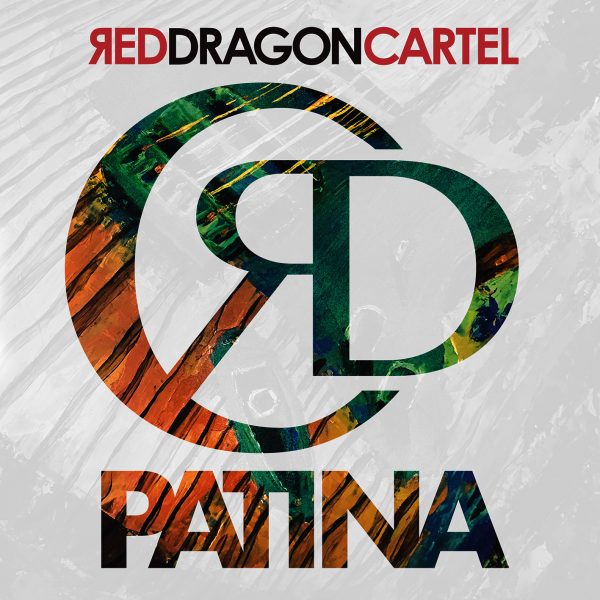

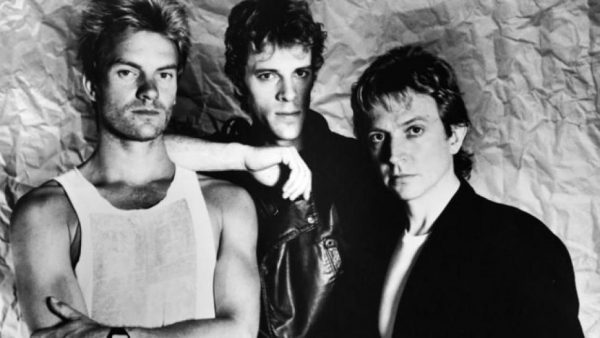
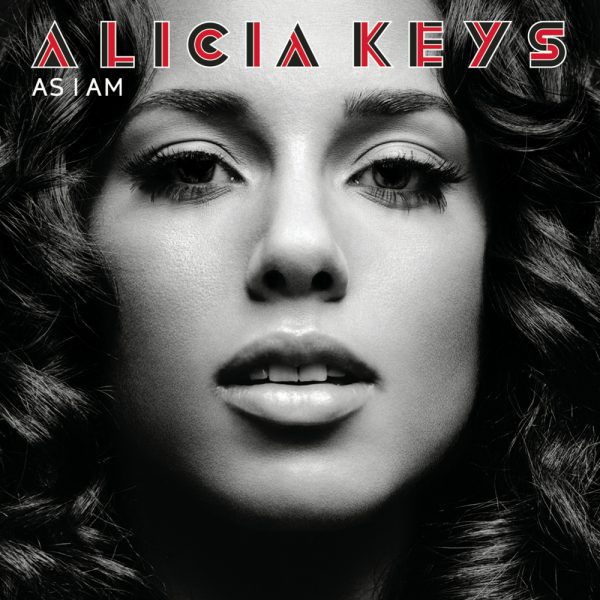
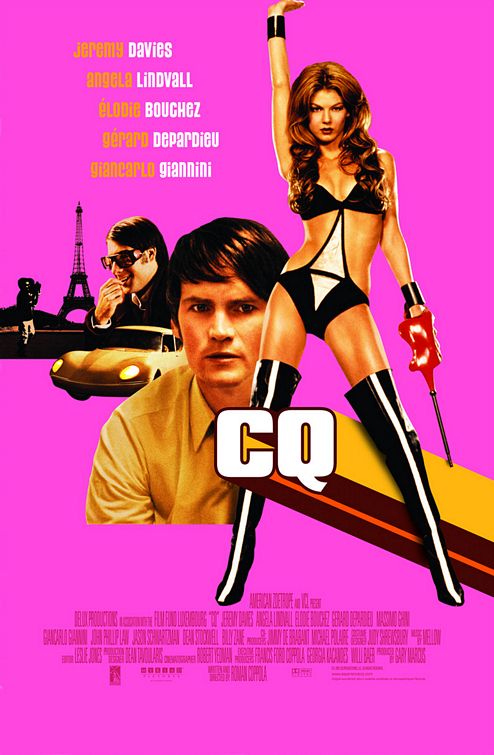

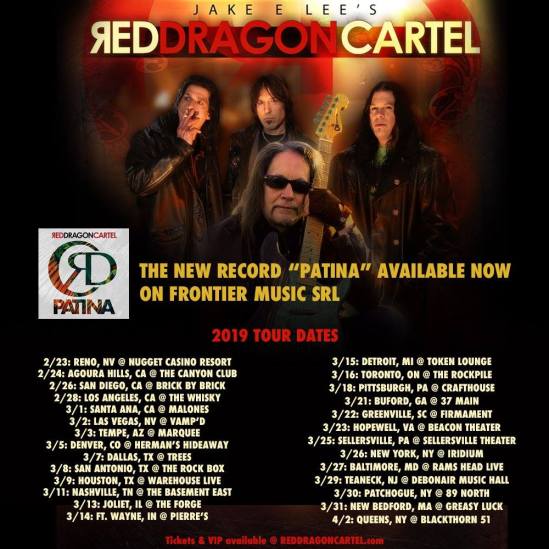
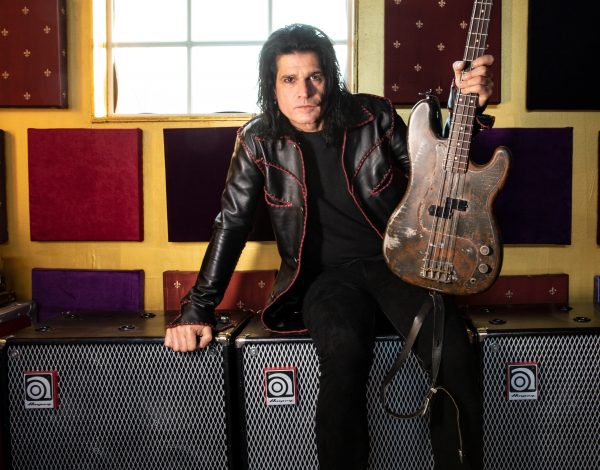
Leave a Reply